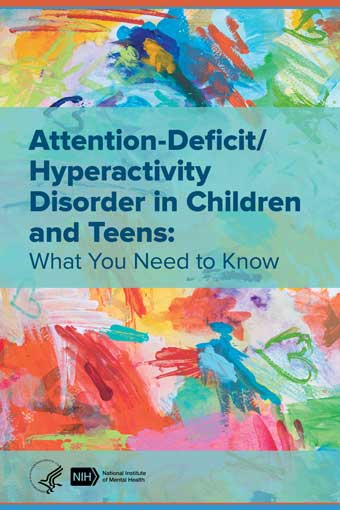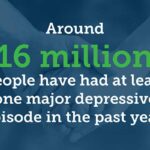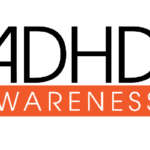Could It Be ADHD? Recognizing Symptoms in Teens and Young Adults

Attention-deficit/hyperactivity disorder (ADHD) is a developmental disorder that affects many children, teenagers, and young adults. It is characterized by an ongoing pattern of inattention, hyperactivity, and impulsivity, which can interfere with daily responsibilities and relationships.
Inattention, hyperactivity, and impulsivity are the three primary symptoms of ADHD, and their presentation can vary among children, teenagers, and college students. There are three types of ADHD – Predominantly Hyperactive-Impulsive, Predominantly Inattentive, and Combined Presentation with Combined Presentation being the most common.
A person may not be diagnosed with ADHD until late teens or early adulthood because teachers or family may not recognize symptoms, they have a mild form of ADHD, or they managed fairly well until experiencing the demands of high school, college, and early adulthood.
Symptoms of ADHD in Adolescents, Teens, and Young Adults
Inattention
Teenagers and college students with inattentive symptoms may struggle to maintain focus on tasks, lectures, or conversations. They might have difficulty organizing their work, managing time, and meeting deadlines, which can lead to poor academic performance.
In addition, they may be forgetful in daily activities, lose things, and be easily distracted. Inattentive symptoms can impact not only academic success but also social relationships and overall functioning.
Hyperactivity
While hyperactivity tends to decrease in severity as individuals with ADHD mature, teenagers and college students may still experience restlessness or fidgeting. They may find it difficult to stay seated during classes or meetings, have an urge to move around, or feel constantly “on the go.”
Some may engage in excessive talking or struggle to participate in quiet activities without feeling restless. Although hyperactivity may be less pronounced in teens and college students compared to younger children, it can still interfere with academic and social functioning.
Impulsivity
Impulsive symptoms in teenagers and college students can manifest in various ways, such as making hasty decisions without considering the consequences, interrupting others in conversations, or having difficulty waiting for their turn in group settings.
These impulsive behaviors can lead to social conflicts, strained relationships, and engaging in risky behaviors. Impulsivity can also affect academic performance, as students may rush through assignments or tests without carefully considering their responses.
Combination of Symptoms / Combined Type
The most common type of ADHD is characterized by impulsive and hyperactive behaviors as well as inattention and distractibility.
10 Hidden Signs of ADHD
While inattention, hyperactivity, and impulsivity are the three main symptom categories, ADHD can manifest in subtle and various ways.
The specific symptoms and their severity can vary significantly among individuals, and some symptoms might be less apparent or more easily overlooked. This variability can make ADHD more challenging to identify and diagnose in some cases.
As children with ADHD mature into preteens and teenagers, their symptoms can evolve. While hyperactivity and impulsivity are the most common symptoms in young children, increased academic and social demands may cause inattention to become more noticeable and disruptive.
During adolescence, hyperactivity may decrease in severity, manifesting as restlessness or fidgeting instead. Inattention and impulsivity often persist, potentially exacerbating academic, organizational, and relational difficulties. Additionally, teenagers with ADHD are more prone to impulsive, high-risk behaviors.
1. “Laziness”
ADHD can sometimes be mistaken for laziness due to misconceptions about the disorder and its symptoms. People with ADHD often struggle with executive functioning, which includes abilities such as planning, organizing, prioritizing, and regulating attention. These difficulties can lead to problems in completing tasks, managing time, and staying organized.
2. Anxiety or Depression
ADHD can be mistaken for anxiety or depression in some cases because of the overlapping symptoms. For instance, inattention, restlessness, and difficulty concentrating, which are typical ADHD symptoms, can also be present in individuals with anxiety or depression.
Anxiety can coexist with ADHD, or it can be a result of undiagnosed and unmanaged ADHD symptoms. Girls with ADHD are more likely to have inattentive symptoms, which can be less obvious and are often overlooked, and one reason why ADHD in girls and women is often underdiagnosed.
When these symptoms go unrecognized, the challenges they face may lead to feelings of anxiety or frustration. It is essential to obtain a proper evaluation to identify the underlying cause of anxiety and determine if ADHD is a contributing factor, as the appropriate treatment approach can vary depending on the diagnosis.
3. Moodiness
People with ADHD may experience intense emotions and have difficulty managing stressors and their emotional responses to them. Young people with ADHD may experience frustration due to struggles with attention, organization, and time management, causing increased stress and outburst. They may feel overwhelmed by academic and social demands as well.
4. Procrastination and poor time management
Putting off tasks or having difficulty initiating tasks can be a sign of ADHD. While time management can be challenging for those with ADHD, the root cause of procrastination is often related to neurological factors and difficulties with executive functioning such as prioritizing, planning, and organizing tasks.
5. Time-blindness
Time-blindness, is a common challenge experienced by people with ADHD. It refers to the difficulty in perceiving, estimating, and managing time effectively. People with ADHD often struggle with understanding the passage of time, which can lead to problems with planning, prioritizing, and completing tasks within a given timeframe. Difficulties such as missed deadlines and being late to appointments or class can impact a person’s personal, professional, and academic life.
6. Perfectionism
People with ADHD may develop perfectionist tendencies as a coping mechanism to counteract the challenges they face. They may believe that by striving for perfection, they can avoid criticism, compensate for their difficulties, or prove their worth. Perfectionism in young people with ADHD can manifest in various ways, such as spending excessive amounts of time on tasks, procrastinating due to fear of failure, or being overly self-critical.
7. Sensitivity to rejection
People with ADHD may be more sensitive to perceived criticism or rejection, leading to feelings of inadequacy or an intense fear of disapproval. Throughout their lives, people with ADHD may have faced criticism or negative feedback due to difficulties with attention, organization, impulsivity, or other symptoms. This can lead to low self-esteem, heightened sensitivity to criticism, and a fear of being judged or rejected.
8. Not getting work done
Executive functions like planning, decision-making, working memory, and cognitive flexibility can be impaired in those with ADHD, leading to challenges in organizing and completing tasks.
9. Sleep Problems
People with ADHD may experience a variety of sleep issues. Trouble falling asleep, staying asleep, or waking up on time are common, and poor sleep can exacerbate other ADHD symptoms.
10. Impulsive Spending
Impulsive decision-making can extend to financial behaviors, including impulse buying. Impulse buying can cause issues with budgeting and overspending.
Diagnosing ADHD
There is no single test to diagnose ADHD, and as mentioned earlier in this article, other problems can have similar symptoms.
Healthcare providers use the guidelines in the American Psychiatric Association’s Diagnostic and Statistical Manual, Fifth edition (DSM-5), to help diagnose ADHD. This diagnostic standard helps ensure that people are appropriately diagnosed and treated for ADHD.
While ADHD can be diagnosed at any age, this disorder begins in childhood. When considering the diagnosis, the symptoms must be present before the individual is 12 years old and must have caused difficulties in more than one setting. For instance, the symptoms can not only occur at home.
Consider seeking professional help if symptoms persist for a few weeks or longer, causes distress for them or your family, or interferes with their functioning at school, at home, or with friends. Only trained healthcare providers can diagnose or treat ADHD.
Treatment of ADHD
While there is no cure for ADHD, currently available treatments may reduce symptoms and improve functioning. Treatments include medication, psychotherapy (including cognitive behavioral therapy), lifestyle modifications, education or training, or a combination of these.
Adolescent and Child Psychiatry care from Dr. Mathew in our Sudbury, MA office
Dr. Bijoy Mathew is Board Certified in both Psychiatry and Child and Adolescent Psychiatry. He treats adults and adolescents ages 14 and up. Dr. Mathew is a warm, knowledgeable, experienced clinician who is committed to his patients’ wellness through a strong collaborative relationship.
Dr. Mathew specializes in caring for patients with anxiety, depression, behavioral issues, ADHD, bipolar disorder, emotional disturbance, family conflict, life transitions, medication management, obsessive-compulsive disorder, parenting, school issues, self-esteem, sleep or insomnia, stress, trauma, and PTSD.
Novum Psychiatry is committed to providing as much flexibility as possible for our patients to maximize access to psychiatric and therapy care. The majority of new patient adolescent and teen initial visits will be an in-office appointment in our Sudbury office. Subsequent appointments for established patients may be offered via telehealth (Zoom or phone call).
Learn more about our telehealth mental health services throughout Massachusetts and Rhode Island.






